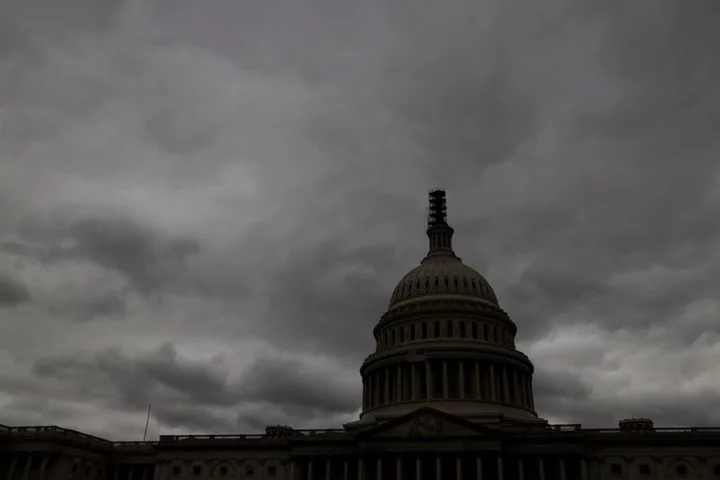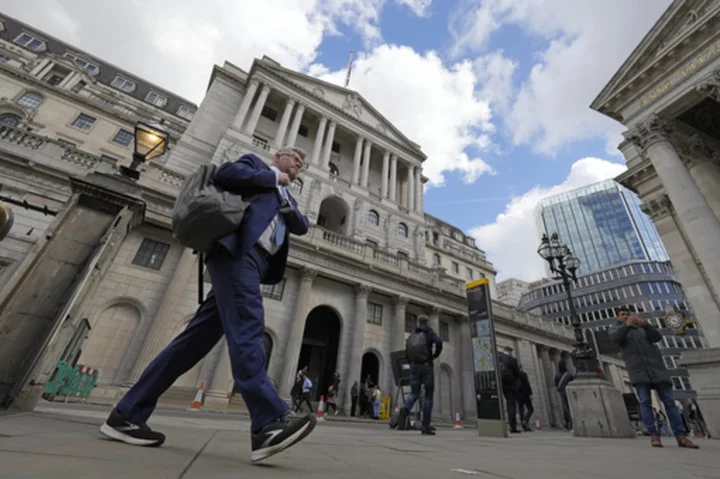By Davide Barbuscia
NEW YORK (Reuters) -A U.S. government shutdown would negatively impact the country's credit, credit rating agency Moody's said on Monday, a stern warning coming one month after Fitch downgraded the U.S. by one notch on the back of a debt ceiling crisis.
U.S. government services would be disrupted and hundreds of thousands of federal workers furloughed without pay if Congress fails to provide funding for the fiscal year starting Oct. 1.
A possible shutdown would be further evidence of how political polarization in Washington is weakening fiscal policymaking at a time of rising pressures on U.S. government debt affordability because of higher interest rates, Moody's analyst William Foster told Reuters.
"If there is not an effective fiscal policy response to try to offset those pressures ... then the likelihood of that having an increasingly negative impact on the credit profile will be there," said Foster. "And that could lead to a negative outlook, potentially a downgrade at some point, if those pressures aren't addressed."
Moody's has an "Aaa" rating for the U.S. government with a stable outlook - the highest creditworthiness it assigns to borrowers. It is the last major agency with such a rating after Fitch downgraded the U.S. government triple A rating by one notch in August to AA+ - the same rating assigned by S&P Global in 2011.
"Fiscal policymaking is less robust in the U.S. than in many Aaa-rated peers, and another shutdown would be further evidence of this weakness," Moody's said in a statement.
The economic impact of a shutdown would likely be limited and short-lived, with the most direct economic impact caused by lower government spending. Of course, the longer the shutdown lasts, the more negative its impact would be on the broader economy, said Moody's.
Congress so far has failed to pass any spending bills to fund federal agency programs in the fiscal year starting on Oct. 1 amid a Republican Party feud.
The shutdown would not impact government debt payments but it would come just a few months after political brinkmanship around the U.S. debt limit threatened to cause a U.S. sovereign debt default.
That crisis, even though it was eventually resolved before any missed debt payment, was a major factor leading Fitch to downgrade its U.S. rating by one notch last month.
"In this environment of higher rates for longer and pressures building on the debt affordability front, it's that much more important that fiscal policy can respond," said Foster at Moody's.
"And it looks increasingly challenged because of things like the government shutdown and having come off the debt limit episode, because it's such a polarized political dynamic in Washington," he said.
(Reporting by Davide Barbuscia; Editing by Megan Davies, Sharon Singleton and Josie Kao)









